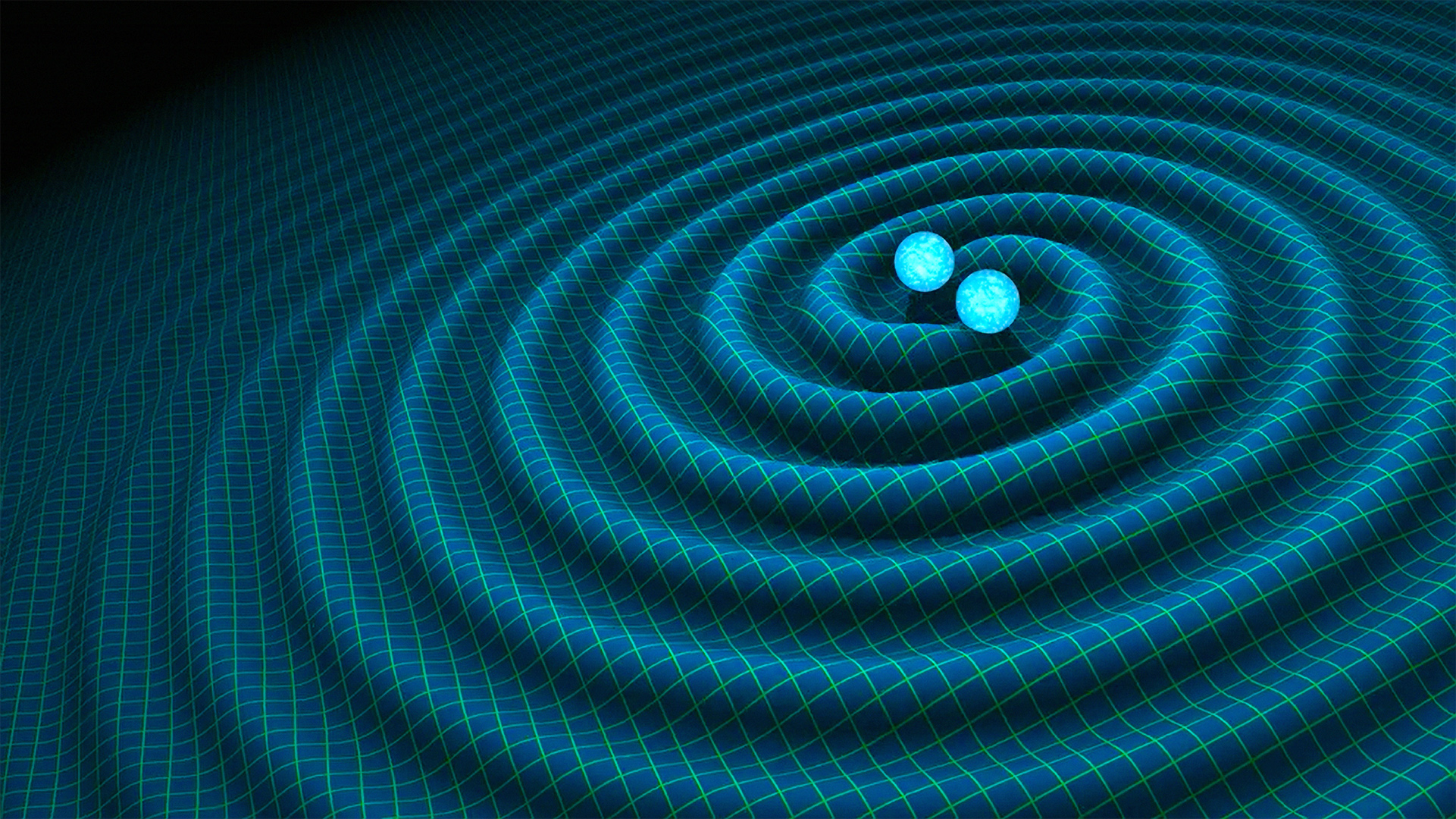Gravitational wave detectors start next observing run to explore the secrets of the Universe

The IEEC participates in Virgo through the Institute of Cosmos Sciences (ICCUB)
Researchers expect to observe more energetic cosmic phenomena and test Einstein's theory of relativity
Today the LIGO-Virgo-KAGRA (LVK) Collaboration begins a new observing run with upgraded instruments, new and even more accurate signal models, and more advanced data analysis methods. The LVK collaboration consists of scientists across the globe who use a network of observatories—LIGO in the United States, Virgo in Europe, and KAGRA in Japan—to search for gravitational waves, or ripples in space-time, generated by colliding black holes and other extreme cosmic events.
This observing run, known as O4, promises to take gravitational-wave astronomy to the next level. O4 will begin on 24 May and last 20 months, including up to two months of commissioning breaks. It will be the most sensitive search yet for gravitational waves. LIGO will resume operations on 24 May, while Virgo will join later in the year. KAGRA will join for one month, beginning 24 May, rejoining later in the run after some upgrades.
“Thanks to the work of more than a thousand people around the world over the last few years, we’ll get our deepest glimpse of the gravitational-wave Universe yet,” said Jess McIver, the Deputy Spokesperson for the LIGO Scientific Collaboration (LSC). “A greater reach means we will learn more about black holes and neutron stars and increases the chances we find something new. We’re very excited to see what’s out there.”
The Institute of Space Studies of Catalonia (IEEC) participates in this collaboration through the Institute of Cosmos Sciences of the University of Barcelona (ICCUB), which has researchers working on Virgo. This detector will continue commissioning activities in order to increase its sensitivity before joining O4 later this year. “Over the past few months we have identified various noise sources and have made good progress in sensitivity, but it is not yet at its design goal" declared recently elected Virgo spokesperson Gianluca Gemme. “We are convinced that achieving the best detector sensitivity is the best way to maximise its discovery potential.”
KAGRA is now running with the sensitivity planned for the beginning of O4. Jun'ichi Yokoyama, the chair of KAGRA Scientific Congress, says, “KAGRA is the first 2.5th generation detector in the world which started 20 years after LIGO. We will join O4 for one month and resume commissioning to further improve the sensitivity toward our first detection.”
With the detectors’ increased sensitivity O4 will observe a larger fraction of the Universe than previous observing runs. The LIGO detectors will begin O4 approximately 30% more sensitive than before, which will result in a detection of a merger of black holes or other objects every 2 or 3 days. Additionally, the increased sensitivity will increase the ability to extract more physical information from the data. This increased signal fidelity will improve scientists’ ability to test Einstein’s theory of general relativity and infer the true population of dead stars in the local Universe.
The first gravitational-wave signals were detected in 2015. So far, the global network has detected more than 80 black hole mergers, two probable neutron star mergers and a few events that were most likely black holes merging with neutron stars. During O4, researchers expect to observe even more energetic cosmic events and gain new insights into the nature of the Universe.
Press release prepared in collaboration with the Institute of Cosmos Sciences (ICCUB) and the LIGO-Virgo-KAGRA Collaboration.
Main Image
Caption: An artist's impression of gravitational waves generated by binary neutron stars.
Credits: R. Hurt/Caltech-JPL
Links
– IEEC
– Institut de Ciències del Cosmos
– LIGO
– Virgo
– KAGRA
More information
The Institute of Space Studies of Catalonia (IEEC — Institut d’Estudis Espacials de Catalunya) promotes and coordinates space research and technology development in Catalonia for the benefit of society. IEEC fosters collaborations both locally and worldwide and is an efficient agent of knowledge, innovation and technology transfer. As a result of more than 25 years of high-quality research, done in collaboration with major international organisations, IEEC ranks among the best international research centers, focusing on areas such as: astrophysics, cosmology, planetary science, and Earth Observation. IEEC’s engineering division develops instrumentation for ground- and space-based projects, and has extensive experience in working with private or public organisations from the aerospace and other innovation sectors.
IEEC is a private non-profit foundation, governed by a Board of Trustees composed of Generalitat de Catalunya and four other institutions that each have a research unit, which together constitute the core of IEEC R&D activity: the Universitat de Barcelona (UB) with the research unit ICCUB — Institute of Cosmos Sciences; the Universitat Autònoma de Barcelona (UAB) with the research unit CERES — Center of Space Studies and Research; the Universitat Politècnica de Catalunya · BarcelonaTech (UPC) with the research unit CTE — Research Group in Space Sciences and Technologies; the Spanish Research Council (CSIC) with the research unit ICE — Institute of Space Sciences. The IEEC is a CERCA (Centres de Recerca de Catalunya) center.
Contacts
IEEC Communication Office
Barcelona, Spain
E-mail: comunicacio@ieec.cat
